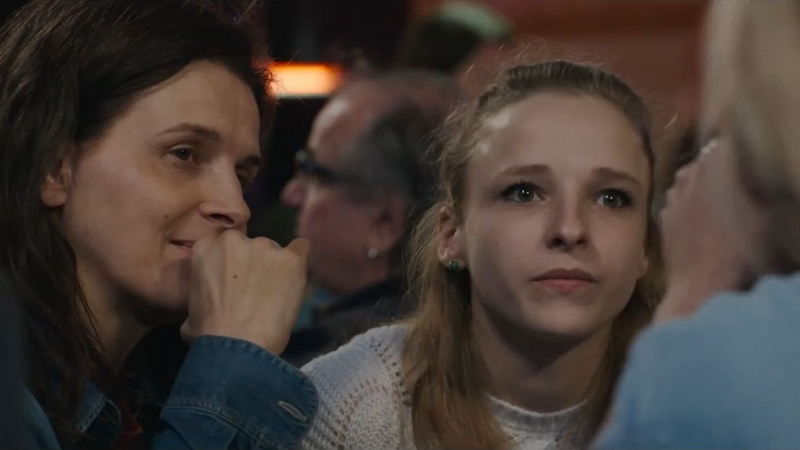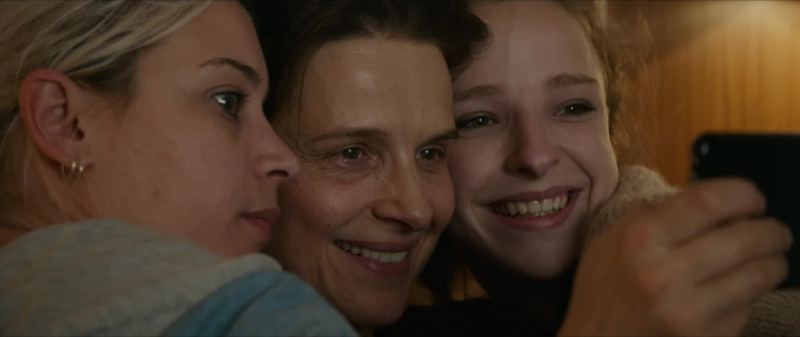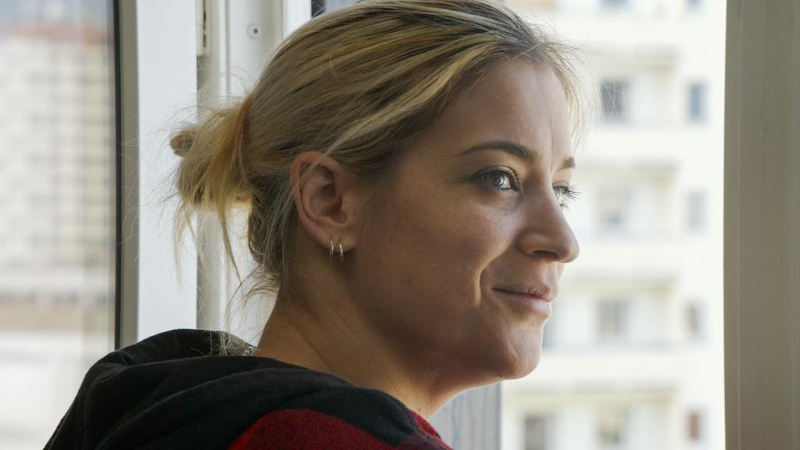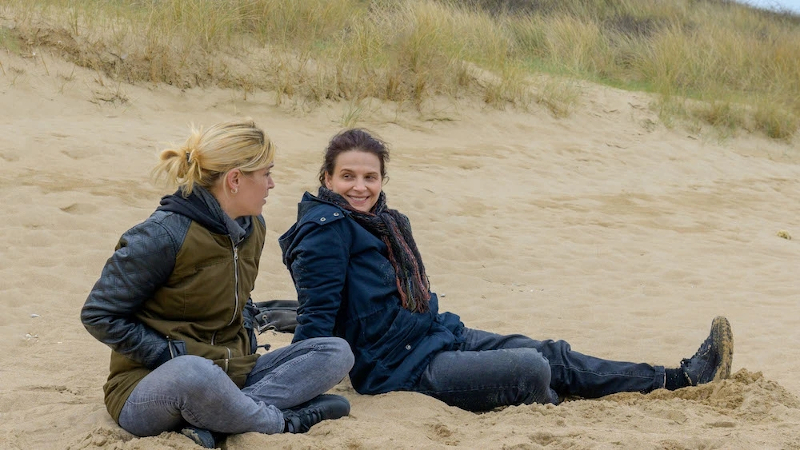Director – Emmanuel Carrère – 2021 – France – Cert. 12a – 106m
****
A successful journalist goes undercover in Caen to pose as unemployed and get a job as a cleaner to write a book on conditions in the cleaning industry – out on BFI Player (rental) from Friday, June 24th
This opens at an unemployment office where Christèle (Hélène Lambert) insists on seeing a staff member without an appointment which swiftly develops into a full blown row as she asks, how am I supposed to feed my kids? This is a film about those at the bottom of the social pile, the women who work in the cleaning industry.
The tone shifts to something much quieter as Marianne Winckler (Juliette Binoche) is interviewed for work. She’s asked about the 23-year gap in her employment record, She was married, she explains, but then her husband moved his lover into the family home and the situation became intolerable. So she came to Caen and is now looking for work.
Given a job as a maintenance agent (i.e. cleaning lady), she finds herself on a crew with Christèle who teaches her the ropes. The amount of toilet cubicles that must be cleaned in a day requires the women work at speed, which means that the work isn’t always done to the employer’s satisfaction. Before long, Marianne is out of a job.
Alongside the unsustainable work pressure, the other element that’s evident is the resilience of these women for whom their work is their only means of supporting themselves and their families. A strong sense of solidarity develops between Marianne, Christèle, Marilou (Léa Carne) and others.

Just as the cast feartures international star Binoche playing alongside unknowns in the manner of the UK’s Ken Loach or Belgium’s Dardennes brothers, so Marianne’s character is not all she seems. Her job centre caseworker warns her, “I’m onto you: I know who you are.” Winckler is, in fact, a journalist, posing as a woman in need of any job she can find in order to get first-hand experience of life as a cleaner, the working conditions and so on, so that she can write about them and their plight, thus bringing this to the attention of a wider public. Because she describes the husband she claims to have left as well off, her overall middle class demeanour anf cover story are convincing enough: she absolutely feels like a woman who has been looked after for 23 years who has suddenly found herself out of her depth trying to survive in the real world, but the problem is that her story is a fiction.
Winckler talks in voice over about how, in writing about a subject, you move from simply recording everything in writing to discovering the subject about whom you’re writing. For Winckler, in this narrative, it’s Christèle specifically rather than all the women in the cleaning industry in Caen, who becomes that subject.
The truth behind the film is stranger still, being based on real life journalist Florence Aubernas’ non-fiction bestseller for which the author went undercover to experience first-hand the lives of women working in the cleaning industry in Caen. While the film has been made with the author’s blessing by a director she thought suitable – Carrère is another writer, albeit one who occasionally branches out to make movies – and covering similar subject matter, the journalist here played by Binoche doesn’t have Aubernas’ name and isn’t intended to represent her… Rather, this is a fictionalised account inspired by the process Aubernas used in writing the book.

As in the films of Loach and others who employ non-actors to depict the everyday realities of ordinary people’s working lives, the in-your-face approach of the technique makes the narrative feel very down to Earth and real, although it is, in fact, a fiction.
Winckler quickly learns that car ownership makes a huge difference to the amount of jobs available to a cleaner, and is helped out with the loan of a car enabling her to drive to otherwise inaccessible shifts. Thus she finds herself working alongside Christèle, Marilou and others on the Caen-Portsmouth ferry while it’s in harbour in Ouistreham. It’s the most demanding gig in the area, but it seems to be the one where all the women end up.
Winckler’s big problem is that working alongside these women, and making notes like diary entries when they’re not looking, she’s not told them what she’s up to and is, in a sense, betraying their confidence even if she justifies it to herself and her readership with the argument about letting the public really know what’s going on in the lives of cleaners. Sure enough, her treatment of Christèle eventually comes back to bite her.
While Winckler comes clean and invites all the women with whom she worked to attend her book launch – and while most of them are delighted to be there – Christèle takes a much more confrontational approach, demanding the author leave her book launch, drive down to the ferry and clean shit off lavatory bowls on a shift with her. When Winckler refuses to bard the ferry, Christèle leaves her with a chilling, “don’t say, see you soon.” She has a point, but the difficult character portrayed here is the same one that made a scene at the job centre right at the start. The use of a non-actor to play Christèle gives the character’s argument weight, even as the initial outburst given her in the script undermines it.

If the journalistic ethics are never quite dealt with, the film is at its best matter-of-factly showing us the minutiae of the women doing their jobs (surely Aubernas’ intent in writing her book) and examining. Their camaraderie as they go about their business. This is particularly evident in two scenes.
In one, Winckler gets to Christèle’s apartment where the latter shows her her guinea pigs telling her, “they fuck all the time”.
In the other, as the cleaning crew are leaving the ferry and one of the women realises she’s left her coat in one of the cabins, the women retrieve the coat but then fail to get off the ship before it leaves port, so they find themselves stuck on board for the journey, holed up in a cabin and drinking the booze there, resolving to come back as a group to do the same thing every year. Initially, at least, this occasion provides the opportunity for the women to relax together and bond further. Later on this same trip, Winckler’s true purpose is revealed to the other women when a middle class couple who know her inadvertently blow her cover.
Binoche seems at home with the non-actors, and all involved give striking performances, but it’s Lambert as Christèle who steals the show. If the journalistic ethics of undercover reporting are never quite tackled adequately, the close-up look at the bottom end of society as represented by the lives of these cleaners more than compensates.
Between Two Worlds is out on BFI Player (rental) from Friday, June 24th
Trailer:
2022
UK Cinemas and Curzon Home Cinema (Rental): Friday, May 27th
BFI Player (rental): Friday, June 24th
